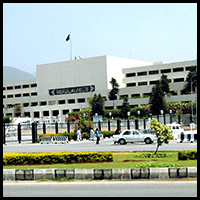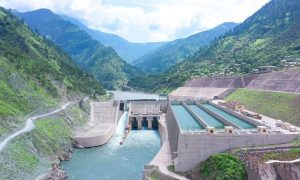Engineering Post Report
The federal government, in pursuance of Goal 8 of the Sustainable Development Goals (SDGs) i.e. Decent Work and Economic Growth, has developed a broader roadmap for the development of the youth under the National Skill Strategy (NSS) which emphasizes on improving governance, exploring multi-source funding capacity enhancement through employable skills, quality assurance, access and equity, industry ownership and skill development for catering the demands and requirements of the international market for increasing foreign remittances.
The emphasis has been laid on re-skilling the existing workers through Recognition of Prior Learning and provision of subsidized loan to the unemployed youth. Further, the introduction of the Competency Based Training and Assessment is an important element of the National Skills Strategy which is the basis of the ongoing Technical and Vocational Educational and Training (TVET) sector reforms in Pakistan. It also provides the basis for the implementation of the National Vocational Qualification Framework.
The roadmap so developed also urges on public-private partnership; increasing the private sector role in the governance of TVET and encouraging linkages with the informal sector through Recognition of Prior Learning.
Further, the youth empowerment and productivity has also been given due priority in the National Youth Development Framework. In order to implement the said interventions, following special initiatives had been taken under the Public Sector Development Programme (PSDP) for financial year:
Introducing Matrict-Tech Pathways for Integrating Technical and Vocational Education and Training and Formal Education with an allocation of Rs 215.00 million and Establishment of Polytechnic institute for Boys in Skardu with an allocation of Rs 197.819 million.
Through the aforementioned interventions, 27 TVET Laboratories for 15 selected schools in Islamabad Capital Territory, Azad Jammu and Kashmir and Gilgit-Baltistan have so far been established. Further, two newly constructed technical and vocational institutes, located at Gwadar and Skardu, are going to be operationalized soon. Additionally, 25 per cent quota is specified for women under these schemes.








